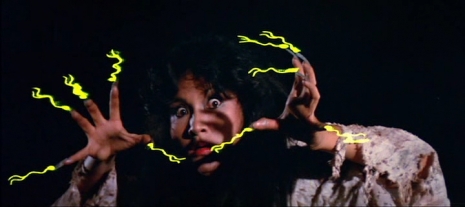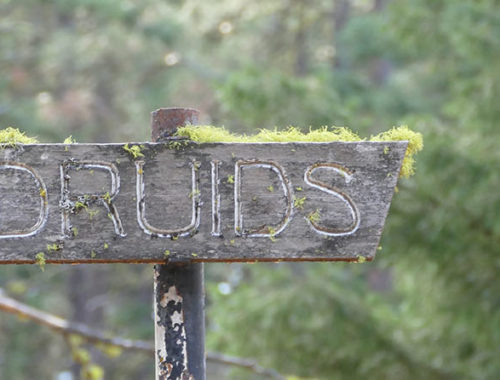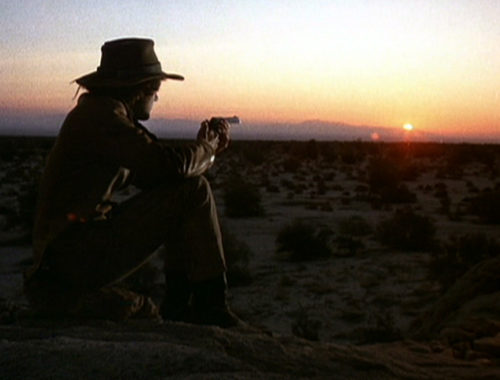In or out of the Broom Closet
For as long as I can remember, Witches and Pagans have talked about whether or not they’re in the “broom closet,” meaning whether or not they’re out about their religion publicly. Whether to be in or out and who to come out to (if anyone) are huge decisions for many Wiccans and Pagans, or at least they have been historically.
The Broom Closet in the 1980s
When I first started getting into Wicca in the 1980s, we heard stories about people losing their jobs when their employers found out they were Wiccan, Wiccans being disowned by their families because of their religion, and Wiccans losing their children in custody battles against a parent who wasn’t Wiccan. It was considered unwise by many Wiccans to be out of the closet to anyone but close friends and family, and the general notion was even those people had to be chosen carefully.
A close friend of mine died a couple of years ago, and something happened afterward that got me thinking about the broom closet again. My husband and I interacted a lot with our friend’s grieving family and friends, many of whom we’d never met before. His memorial was held in his living room, and friends and family crammed in, sitting knee-to-knee on chairs and pillows to tell stories about his life.
My friend had been a member so many communities—he’d been fluent in several languages, played violin in a major symphony orchestra, had been an astonishing singer, had earned a PhD and taught at the college level, had been a consummate ritualist, and had been an initiate of a Wiccan tradition, a Pagan tradition, and Tibetan Buddhism. There was at least one person from most of those groups present to talk about the impact he’d had on them. As each person spoke, I was surprised by how many things my friend had done that I had no idea about before he died. Afterward, I talked with several of the people present, and most had come to the same realization I did. His family members, his language students, and the academics either hadn’t known about his Paganism and Buddhism at all, or hadn’t known the full extent of it. Many of the Pagans hadn’t known about his music, and some didn’t know about his academic career.
Two things struck me about this. One was that our friend had compartmentalized his life to the point where every single person in the room except his husband—even people who knew him very, very well—was surprised by something they learned about him. He’d had about eight closets, not just one. I knew why he wasn’t out as a Pagan to the academics. His dissertation was on folk magic, and, as he put it, the academics “respect researchers, but not practitioners.” He was extremely afraid that if his review board found out he was Pagan, they’d think his dissertation work was compromised, since it was about Paganism. As for the other closets, he’d come into Paganism at roughly the same time I did, and I can only assume he’d heard the same cautionary tales about being out that I had, not to mention ones from the 1970s and 1980s LGBTQ community.
The second thing that struck me was the level of acceptance of his many worlds by the people at the memorial, including his family. The family members sought me out after the memorial because I had said I knew my friend from his writings long before I met him in person, and they were curious about what writings I meant. When I explained about his Pagan and Wiccan writing, their response was not critical or judgmental at all. They were just fascinated by a facet of him they hadn’t known.
My Choice
Personally, I’m only selectively “out,” but my choice not to be out to everyone is more about privacy than fear of reprisal. My friends know I’m Wiccan, but I’ve chosen to tell only select professional colleagues. I work in education, and I believe very strongly that religion—mine or anyone else’s—has absolutely no place in public schools or the workplace. I’m also a private person. I love and use social media, but I just don’t have the urge to splatter my personal life all over Facebook.
As for my family, my husband and I aren’t quite as lucky as our friend was when it comes to family support of our religion. In fact, we felt sad that he never told his family, so he never knew that they would have supported and loved him regardless of his religion. In contrast, the story of my attempt to come out to my mother has become semi-legendary in certain circles. I had just taken a deep breath and opened my mouth to tell her when she interrupted with a long story about her friend Mary Lou (in a thick, Frances McDormand “Fargo” accent): “You know Mary Lou just went to that Salem Massachusetts, and she said it was so DARK and creepy there and there and everyone was a Witch, and they were all running around in black with those penta-thingies around their necks. I know I’m never going to go there. Gives me the shivers. Now what were you going to tell me, honey?” It was her way of telling me she didn’t want to know.
The Broom Closet Now
Things have changed a lot since I was new to Wicca. Wicca has grown exponentially, and it’s far more well-known and accepted—or at least tolerated—than it was thirty years ago. Buffy the Vampire Slayer, Charmed, American Horror Story, and The Chilling Adventures of Sabrina have brought Witches and Wiccans back into the greater public consciousness, if not always in a positive or accurate way. Where we once had about ten reliable Wicca books, a few newsletters, and bootleg videos of Simon: King of the Witches, people coming into Wicca now have hundreds of books and websites, and Wiccans can network and buy supplies online from almost anywhere.
So many of the barriers my friends and I faced two decades ago when we started a college Wicca group—having to convince the university we weren’t Satanists, having to find other Wiccans with no Internet, posting flyers across campus and in co-ops and other “hippy hangouts” and hoping someone would actually see them, Christian groups taking down our flyers and picketing our group meetings—are either gone or are far less common because of changes in technology and public awareness. Obviously, some parts of the country are more accepting than others, and some people are more accepting than others, but the public’s exposure to Wicca seems to have created a more open environment, where many Wiccans can be more honest about who they are. In fact, recently I’ve talked to several Wiccans who hadn’t even considered being in the closet. The fact that they never felt the need to hide says to me the paradigm has changed a lot, and that’s awesome.
If You’re on the Fence
There’s no right or wrong answer to the question of whether you should be out. The more non-Wiccans interact with Wiccans, the less threatening and marginalized we’ll be, so if you feel safe coming out—either fully or partially—I hope you will, when you’re ready. However, if you’re apprehensive about coming out, you don’t have to do it. It’s important that you do what feels right—and safe–to you. You may choose never to come out, or you might find a time later in your life that’s more appropriate.
There are only two taboos here: you should never out another person, and you should never pressure another person to come out. This is a very personal choice, and people need the space and autonomy to make it for themselves.



